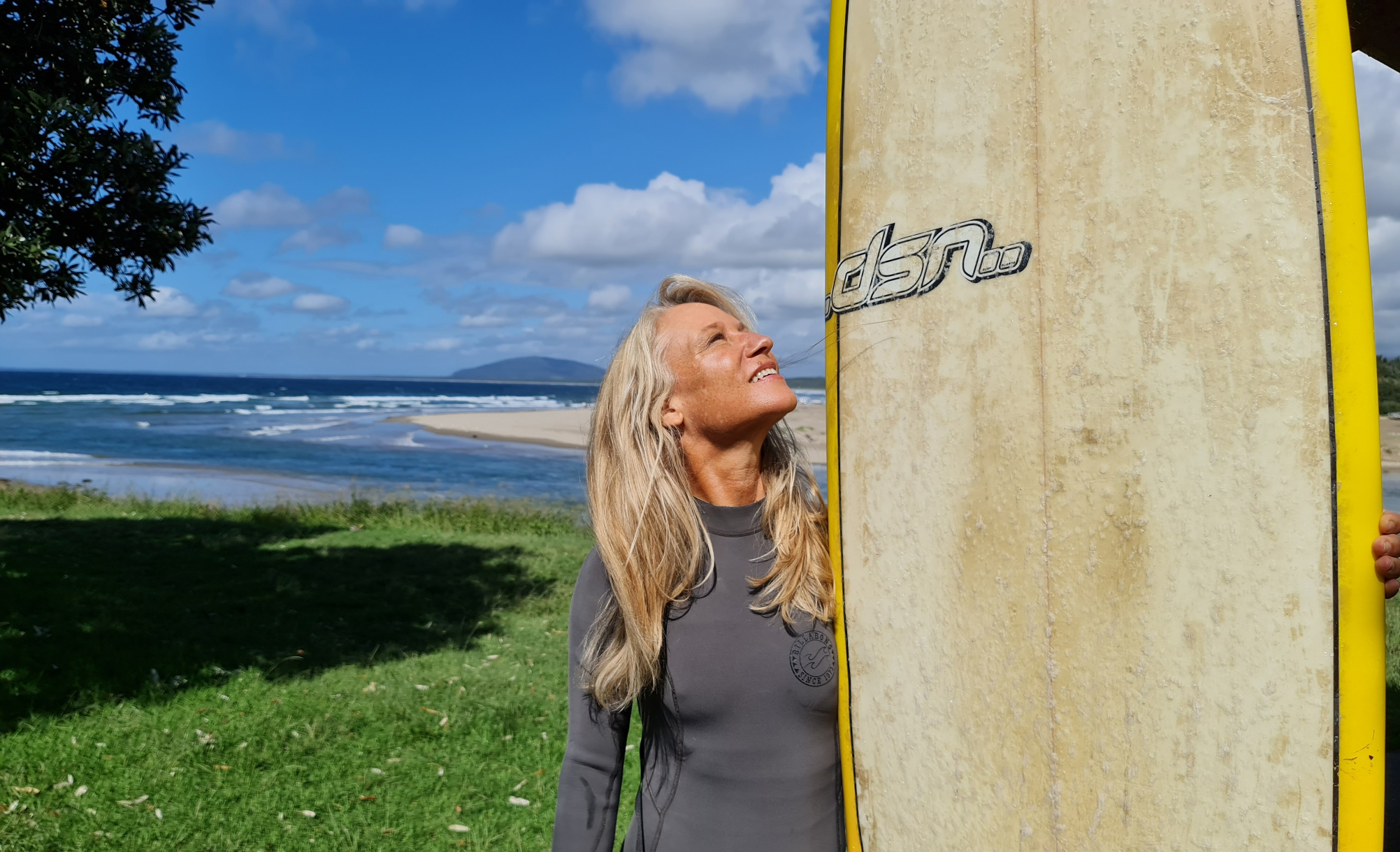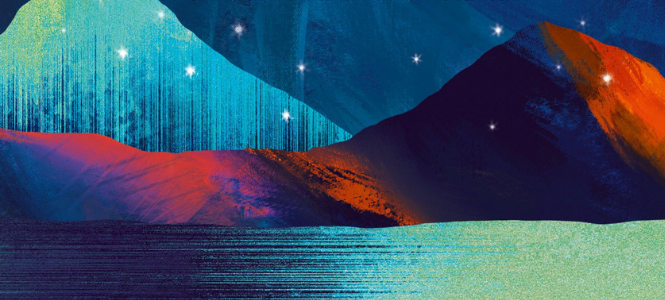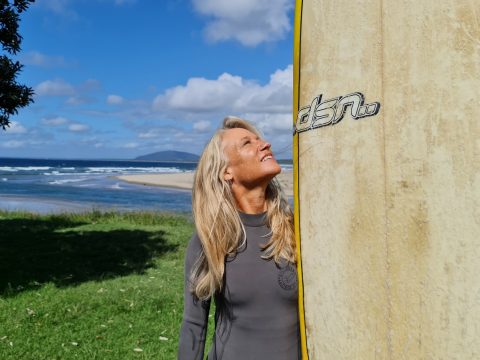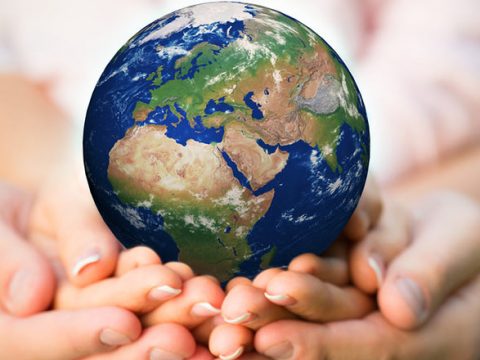
Beyond Climate Grief
3 February 2017

This post originally appeared on the Booktopia website and was posted March 11, 2021. Click here for the original article.
Jonica Newby is a TV producer, writer and director. She has twice won Australia’s most prestigious science journalism prize, the Eureka Award, and is best known as a presenter/reporter on the long-running ABC TV science program Catalyst. What’s less well known is that behind the camera, Dr Newby has produced, written and directed all her own programs for the past 15 years. She’s a regular contributor to radio, print and daily TV, and author of the book The Animal Attraction.
Today, in honour of her new book, Beyond Climate Grief, Jonica Newby is on the blog to answer our Ten Terrifying Questions! Read on …
-
- 1. To begin with, why don’t you tell us a little bit about yourself – where were you born? Raised? Schooled?
I grew up on Western Australia’s infamous Cottesloe Beach. Having successfully dodged the child-eating sharks, I attended Perth’s fabulously named Hollywood Senior High School, thus perhaps inadvertently sealing my fate as a future TV presenter. (For ABC TV’s beloved science program, Catalyst.)
2. What did you want to be when you were twelve, eighteen and thirty? And why?
At 12; a lion scientist or an astronaut. Lion scientist because my sensible Siamese convinced me I could speak fluent cat; astronaut because I was reading Asimov and Le Guin and who wouldn’t want adventures in the stars? At 18, I was studying to be a veterinarian but fantasising about being a TV science reporter. At 30, it came true! I spent 18 glorious years with ABC TV’s Catalyst where, amongst over 300 stories, I made films about space and cats. Win win!
3. What strongly held belief did you have at eighteen that you do not have now?
Soon after 18, I realised I was NEVER going to develop extra-sensory powers. Devastated! I’d diligently read hundreds of sci-fi and fantasy books – surely a touch of telekinesis wasn’t too much to ask? Sadly, as my science brain trained up, my magic brain gave up. The evidence for ESP wasn’t there. That doesn’t stop me seeing the world as completely, sparklingly magical.
4. What were three works of art – film, book or piece of music, etc – you can now say, had a great effect on you and influenced your artistic career?
The Lord of the Rings, Tolkien’s epic narrative masterpiece, introduced me to the archetypal heroes journey and blew my tiny pre-teen mind with its heart-stopping high stakes adventures. The documentary Touching The Void showed me non-fiction could feel as riveting as fiction. Leigh Sales’ Any Ordinary Day is the perfect, empathetic investigative personal journey narrative. I know they sound completely different, but all three influences come together in my book, along with a heavy dash of the magical lyricism of Julia Baird’s Phosphorescence. You’ll see!
5. Considering the innumerable artistic avenues open to you, why did you choose to write non-fiction?
Only a book felt adequate to the epic scale of what I was trying to tackle: how do we find courage when climate change overwhelms us? I confess, when I decided to write it I was truly struggling. I’d been a science reporter for decades, and thought I understood global warming intellectually, but wasn’t prepared for the emotional turmoil when I realised what was ahead for my beloved snow country. Julia Baird, author of the exquisite Phosphorescence, told me books are a fantastic way to process life’s greatest troubles. So I guess that’s what I did – and shared with you.
‘I started this journey in grief, and have been genuinely helped by the advice and wisdom I encountered. I hope you too find fortitude, joy, understanding and pride.’
6. Please tell us about your book!
Beyond Climate Grief: a journey of love, snow, fire and an enchanted beer can is every bit as unexpected, magical, moving, and adventure-filled as it sounds. It’s also a far more personal story than I ever expected to write. After researching what global warming will do to the snow country I love, I plunged into profound climate grief. And if I was struggling, I wondered, how was everyone else coping? What should parents tell their anxious kids? How do we all live our best lives under the weight of this fearsome knowledge?
Inspired by the epic narratives I’d loved as a child, I packed my science reporter skill kit and set out on a quest for answers. But within weeks, reality outstripped imagination as all around me including my family were swept up in the apocalyptic events of 2019-20.
The result is a true Odyssey, complete with fascinating characters, surprising stories like the enchanted beer (and just wait until you meet Postmistress Pam and Squiggy the pig), and even a terrifying Beast. It features meditations on the biology of love, humour and acceptance, intimate conversations with singer-songwriter Missy Higgins and comedians Charlie Pickering and Craig Reucassel, the wisdom of business leader Mike Cannon-Brookes, practical advice from psychological and scientific experts (including ‘disaster brain’ and recovery and how to help anxious kids), incredible accounts from everyday heroes, and a jaw-dropping story from the climate strike kids. It reminds us of the love, beauty and wonder in the world, even amidst disaster. And how we all have a touch of the epic hero inside.
7. What do you hope people take away with them after reading your book?
I want readers to feel swept up in an adventure – one that makes them reflect on their own journey and learnings as we hit the tumultuous 2020s. There’s a a lot of fodder for book club! I also hope readers discover something new about our emotions, and why we evolved love, anger and humour.
Above all, I hope the book provides guidance and emotional sustenance to help us all face the uncertainties ahead. I started this journey in grief, and have been genuinely helped by the advice and wisdom I encountered. I hope you too find fortitude, joy, understanding and pride. Plus practical strategies for thriving under the realities of climate change.
8. Whom do you most admire in the realm of writing and why?
Arggh! Too hard!!! Right now I’m loving Trent Dalton and Kate Grenville. But I could also go Julia Baird. Maybe I’ll cheat and go back to Tolkien. He took the terrible trauma he experienced during two world wars and transformed it into a genre-defining fantasy. Now that is a definition of great art!
9. Many artists set themselves very ambitious goals. What are yours?
My ambition is to prompt discussion and conversations about how to thrive in the unimaginably changing world ahead.
10. Do you have any advice for aspiring writers?
1) Have something you really really want to write about.
2) Craft, craft, craft. Stories love structure.
Thank you for playing!

